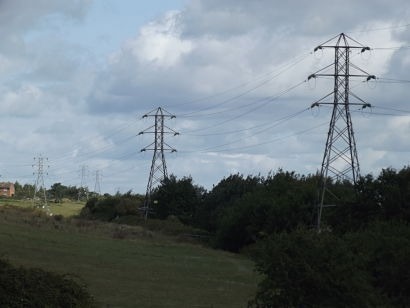
The House of Lords Science and Technology Select Committee has been investigating the resilience of the UK's electricity system, and whether there will be enough electricity to meet demand as the UK has reached a critical pinch point, with a squeezed surplus of electricity-generating capacity. Its report, entitled 'The Resilience of the Electricity System', says that the Government should not be congratulated on keeping the lights on.
The report goes on to add that it is not acceptable for an advanced economy, hugely dependent on electricity, to sail so close to the wind. It found that the UK has been forced to generate extra capacity in the system, using expensive measures with heavy reliance on fossil fuel generation. The report urges the Government to improve its long-term planning to avoid squeezing the capacity margin in such a manner.
During its inquiry, the Committee also heard that demand for electricity has declined substantially since the economic crisis began. If demand had continued to grow, the situation could have been much worse. The report looked at a variety of ways in which a resilient supply of electricity can be maintained, such as increasing interconnection between different countries, new storage technologies and by giving consumers more control over how and when they use electricity.
Making the demand for electricity more flexible and agile can make a huge contribution. Giving consumers more control over how and when they use electricity has huge potential to reduce costs and improve resilience. However, in order to achieve this, the government must do more to optimise market conditions and progress the roll out of smart meters.
The Government also needs to do more to establish the effectiveness of interconnection to other countries and review how beneficial the contribution of interconnected countries could be at times of excessive need.
Flexible generation will also be increasingly important in order to balance the electricity system. The report recommends that all new generation be built in such a way as to maximise its flexibility.
“We chose to look at this issue because, such is our increasing reliance on electricity, any blackouts have the potential to bring our communications and vital services to a grinding halt” said Lord Selborne, Chair of the Committee. “The encouraging finding from our investigation is that overall, the resilience of the electricity system is robust, and witnesses told us we have the most reliable transmission network in Europe. But our report found that the Government sailed too close to the wind, allowing the capacity margin, its safety net, to be squeezed too tightly before taking last minute measures. Moreover these measures, which came at a cost to the taxpayer, were in conflict with the Government's wider aims to decarbonise electricity generation.”
Lord Selborne added that the UK is in new and uncharted territory and that as it strives to secure more decarbonised electricity provision the country will find it harder and harder to keep electricity affordable and to guarantee security of supply. New technologies mean that the electrical system is undergoing immense and radical change. The government must, therefore, stay ahead of the game, with dedicated investment into research and development across a wide range of technologies and constant alertness to cyber-threats.
The Institution of Engineering and Technology (IET) has responded to the report by stating that resilience is not achieved by picking off and solving individual problems but results from the inter-play of the inter-related components and factors that form the whole electricity system.
“Since the last period when electricity resilience was an issue, the three-day week in the 1970s, the underlying issues and the opportunities for resolving them have become significantly more diverse” said the IET’s Dr Simon Harrison. “These include large amounts of self-dispatching renewable generation, the potential electrification of transport and space heating, and the rise of the smart consumer and smart home. These increase complexity and require a level of engineering coordination and integration that the current industry structure and market regime does not provide. In turn this increased complexity presents potentially substantially increased vulnerability to cyber threats.”
Dr Harrison added that the IET is looking forward to working with the Government and others to move this debate forward, thereby allowing coherent engineering solutions to be developed and implemented to allow the UK to decarbonise electricitysuch that resilience is ensured, whilst also optimising costs to consumers.
For additional information:

